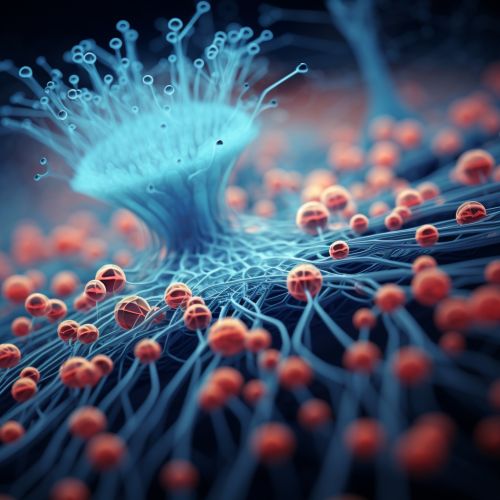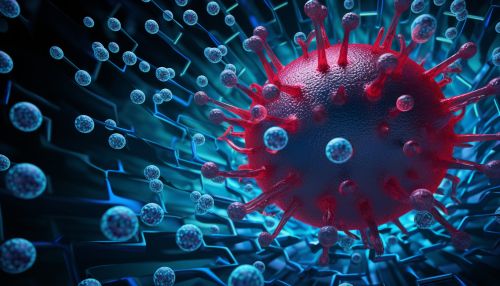Protein biosynthesis
Overview
Protein biosynthesis is the process by which biological cells generate new proteins. It is a complex, multi-step process involving transcription, translation, and post-translational modification. This process is integral to the growth and development of cells and organisms, and is regulated by a variety of factors, including genetic and environmental cues.
Transcription
The first step in protein biosynthesis is transcription. During this process, the information stored in the DNA sequence of a gene is transcribed into a complementary RNA molecule. This is achieved through the action of an enzyme called RNA Polymerase, which synthesizes the RNA molecule based on the DNA template.


Translation
Following transcription, the RNA molecule undergoes translation, a process in which the RNA sequence is converted into a sequence of amino acids to form a protein. This process is carried out by the ribosome, a complex molecular machine that reads the RNA sequence and assembles the corresponding amino acids in the correct order.
Post-Translational Modification
After the protein has been synthesized, it may undergo post-translational modification. This can include the addition of functional groups, such as phosphates or carbohydrates, to the protein, or the removal of certain amino acids. These modifications can significantly alter the function and activity of the protein.
Regulation of Protein Biosynthesis
Protein biosynthesis is tightly regulated to ensure that cells produce the correct amount and types of proteins. This regulation can occur at multiple levels, including the transcription and translation stages, as well as during post-translational modification. Various factors, such as environmental conditions and cellular signals, can influence the regulation of protein biosynthesis.
Clinical Significance
Defects in protein biosynthesis can lead to a variety of diseases, including cancer and neurodegenerative disorders. As such, understanding the mechanisms of protein biosynthesis and its regulation is crucial for the development of therapeutic strategies for these diseases.
